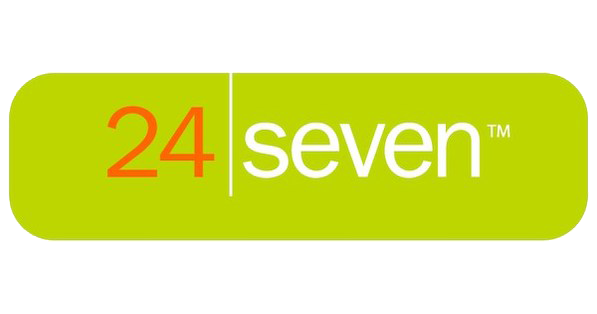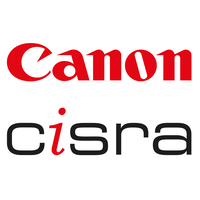Understand what Quantum computing is. This glossary exposes some related commonly asked questions also.
A quick analogy
Alright, picture this: you're trying to solve a mind-boggling maze. Now, your regular computer is like a diligent maze solver - it goes through the maze step by step, checking each path until it finds the right one. It's like your studious friend who meticulously checks every possibility before making a decision. But, let's be real, that can take a while, especially for really tricky mazes.
Now, enter the quantum computer, the superhero of puzzle-solving. It's not your average Joe; it's more like having a team of teleporting, maze-solving clones. Instead of just plodding through one path at a time, it's like they split up, explore all the paths simultaneously, and boom! They find the exit in no time flat. It's like having a bunch of friends who can magically split up and explore the entire maze together.
Why can they do this? Well, it's all thanks to their quantum powers. See, while regular computers use simple on/off switches (imagine light switches that can only be on or off), quantum computers use these funky things called qubits. Qubits are like those mood ring gadgets from the '90s, except they can be happy, sad, or a bizarre mix of both all at once. It's like having a friend who's simultaneously excited and nervous about solving the maze.
And get this: these qubits can also get super chummy with each other through a process called entanglement. It's like having a psychic link between friends; they always know what the other is up to, no matter how far apart they are. So, when one qubit figures out a part of the maze, the others instantly catch on, making the whole process even faster.
So, while regular computers are like your studious buddy taking their time to solve a maze, quantum computers are the turbocharged squad of maze-solving magicians, zipping through every twist and turn at lightning speed. It's like turning a slow-motion puzzle-solving session into a high-speed race to the finish line. Cool, huh?
So, what is quantum computing?
Quantum computing is a type of computing that utilizes the principles of quantum mechanics to process information. Unlike classical computing, which uses bits as the smallest unit of data (0s and 1s), quantum computing uses quantum bits or qubits. This allows quantum computers to handle complex problems more efficiently than classical computers, especially those that involve vast amounts of data and require significant computational power, such as cryptography, drug discovery, and optimization problems.
How does quantum computing differ from classical computing?
The fundamental difference between quantum computing and classical computing lies in their approach to data processing. Classical computers use bits as their basic unit of information, which can either be 0 or 1, representing a binary state. Quantum computing, on the other hand, uses qubits, which can represent a 0, a 1, or both simultaneously, thanks to a principle called superposition. Additionally, quantum computing exploits another quantum phenomenon known as entanglement, which allows qubits to be interconnected in ways that bits cannot. These differences enable quantum computers to process complex datasets and perform calculations much faster than their classical counterparts.
What are qubits in quantum computing?
Qubits, or quantum bits, are the fundamental units of information in quantum computing. Unlike classical bits that can be either 0 or 1, qubits can exist in a state of 0, 1, or both simultaneously, thanks to the quantum phenomenon known as superposition. This ability allows quantum computers to process a vast amount of possibilities at once. Qubits are also capable of being entangled, a state where the state of one qubit can depend on the state of another, no matter the distance between them, enabling unprecedented parallel processing capabilities.
What are the main challenges in developing quantum computers?
Developing quantum computers faces several significant challenges. One of the primary issues is maintaining the stability of qubits, which are extremely sensitive to their environment; even minor temperature changes or electromagnetic waves can cause errors. This problem, known as quantum decoherence, requires sophisticated error correction methods and ultra-cold operating temperatures. Additionally, creating scalable quantum systems that can handle a large number of qubits without losing fidelity is another major hurdle. The technical complexity of engineering quantum systems and the need for advancements in quantum error correction and algorithms also pose significant challenges.
How can quantum computing impact cryptography and security?
Quantum computing has the potential to revolutionize cryptography and security. On one hand, its ability to process complex calculations at unprecedented speeds could break many of the cryptographic algorithms currently used to secure digital communications, such as RSA and ECC, by efficiently solving problems that are infeasible for classical computers. On the other hand, quantum computing also paves the way for quantum cryptography, which uses the principles of quantum mechanics to create theoretically unbreakable encryption methods, such as quantum key distribution (QKD). As such, while quantum computing poses a threat to current security protocols, it also offers new avenues for developing more secure cryptographic systems.
What are quantum algorithms, and how do they work?
Quantum algorithms are computational processes designed to run on quantum computers, leveraging the unique properties of quantum mechanics, such as superposition, entanglement, and interference, to perform calculations. Unlike classical algorithms, which process sequential operations on bits, quantum algorithms operate on qubits, allowing them to explore multiple solutions simultaneously. This parallelism enables quantum algorithms to solve certain types of problems much more efficiently than their classical counterparts. Examples include Shor's algorithm for factoring large numbers and Grover's algorithm for searching unsorted databases, both of which can significantly outperform the best-known classical algorithms for these tasks.
What are the potential applications of quantum computing?
Quantum computing holds promise for a wide range of applications across various fields, including:
- Cryptography: Breaking current encryption methods and developing new quantum-resistant encryption algorithms.
- Drug Discovery: Simulating molecular structures to accelerate the development of new medications.
- Optimization Problems: Solving complex optimization problems in logistics, manufacturing, and finance more efficiently.
- Material Science: Designing new materials by accurately simulating their properties at the quantum level.
- Artificial Intelligence: Enhancing machine learning algorithms with quantum computing to process information faster and more accurately.
- Climate Modeling: Improving climate predictions by analyzing vast datasets and simulating complex climate systems.
How far are we from practical quantum computers?
While significant progress has been made in quantum computing, practical, large-scale quantum computers that can outperform classical computers for a wide range of tasks are still years away. Challenges such as qubit stability (quantum decoherence), error rates, and the need for large-scale qubit entanglement must be overcome. However, smaller quantum computers and quantum simulators that can tackle specific problems are already in development, and some have been made available for research and commercial use through cloud services. The timeline for practical quantum computers is uncertain, but advancements in the field suggest that significant milestones could be reached within the next decade.
What is quantum supremacy, and has it been achieved?
Quantum supremacy is a term used to describe a point at which a quantum computer can perform a calculation that is practically impossible for any classical computer to execute in a reasonable amount of time. In 2019, Google claimed to have achieved quantum supremacy with its 53-qubit quantum computer, Sycamore, which completed a specific problem in 200 seconds—a task that would reportedly take the world's most powerful supercomputer 10,000 years to solve. While this claim has sparked debate and further scrutiny, it marks a significant milestone in the field of quantum computing, demonstrating the potential of quantum computers to surpass classical computing capabilities for certain tasks.
How can one get started with quantum computing?
Getting started with quantum computing involves a combination of theoretical study and practical experience:
- Educational Resources: Begin with online courses, textbooks, and tutorials that cover quantum mechanics basics and quantum computing principles.
- Programming: Learn quantum programming languages such as Qiskit (developed by IBM), Cirq (developed by Google), or Microsoft's Q# to write and simulate quantum algorithms.
- Quantum Simulators: Use online quantum simulators and cloud-based quantum computing platforms like IBM Quantum Experience, Amazon Braket, or Microsoft Azure Quantum to practice running quantum algorithms on simulated or actual quantum hardware.
- Community Engagement: Join quantum computing communities, forums, and workshops to stay updated on the latest research, discuss ideas, and collaborate on projects.
- Research and Development: For those with a deeper interest, pursuing academic research or joining a quantum computing research group can provide more in-depth knowledge and hands-on experience.










